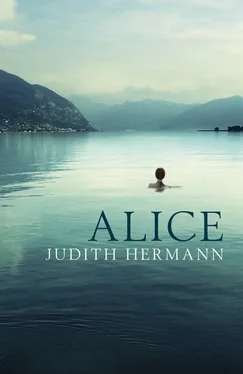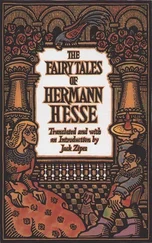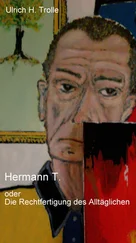Judith Hermann - Alice
Здесь есть возможность читать онлайн «Judith Hermann - Alice» весь текст электронной книги совершенно бесплатно (целиком полную версию без сокращений). В некоторых случаях можно слушать аудио, скачать через торрент в формате fb2 и присутствует краткое содержание. Год выпуска: 2011, Издательство: Clerkenwell, Жанр: Современная проза, на английском языке. Описание произведения, (предисловие) а так же отзывы посетителей доступны на портале библиотеки ЛибКат.
- Название:Alice
- Автор:
- Издательство:Clerkenwell
- Жанр:
- Год:2011
- ISBN:нет данных
- Рейтинг книги:3 / 5. Голосов: 1
-
Избранное:Добавить в избранное
- Отзывы:
-
Ваша оценка:
- 60
- 1
- 2
- 3
- 4
- 5
Alice: краткое содержание, описание и аннотация
Предлагаем к чтению аннотацию, описание, краткое содержание или предисловие (зависит от того, что написал сам автор книги «Alice»). Если вы не нашли необходимую информацию о книге — напишите в комментариях, мы постараемся отыскать её.
Alice — читать онлайн бесплатно полную книгу (весь текст) целиком
Ниже представлен текст книги, разбитый по страницам. Система сохранения места последней прочитанной страницы, позволяет с удобством читать онлайн бесплатно книгу «Alice», без необходимости каждый раз заново искать на чём Вы остановились. Поставьте закладку, и сможете в любой момент перейти на страницу, на которой закончили чтение.
Интервал:
Закладка:
It’s for you, Frederick said. Just like that, he said.
Yes, for me, Alice said. I wonder why.
You’ll find out, Frederick said. You will find out.
Afterwards he walked across the bridge over the river, the brackish water the same today as back then, the iron Prussian eagles forged into the bridge railing by their wings. And nobody was watching. Except Alice, who watched him walk off, freed now from the burden of the little bag containing the letters Malte had written in those years. It had stopped raining. Frederick strolled off, stopped once and turned to look up at the building cranes. What was he thinking about? Then he walked on. It wasn’t he who had phoned Alice. Alice had phoned him. Was there someone after Malte? Alice had asked him. No, Frederick had replied. After Malte there was no longer anyone, only some physical encounters, but that’s something quite different. It seemed he didn’t think it remarkable that there was no one else after Malte.
A flatbed pickup truck was coming out of the narrow street of the hotel where the clerk handed room keys attached to heavy brass weights across the counter to new hotel guests, where the waitresses took off their aprons in the laundry room, brushing their hair in the light of fluorescent tubes. The pickup truck, turning with deliberate speed out of the narrow street on the eastern bank of the river, was carrying Alice’s Japanese cardboard car. With its dream-catcher, petrol receipts, hair clips, broken umbrellas, picnic blankets, old newspapers, sand from Lake Müritz, peanut shells, sweet wrappers, and aspirin. On the passenger seat the little plastic card from the gypsy who — on the periphery of the new housing development — had looked up into the sky, the way Frederick had, and then had disappeared, vanished, never to reappear. Alice watched the pickup truck. She had a brief, feeble impulse to run after it but tripped again in her high heels.
Gripping the bag containing Malte’s letters, she walked up the stairs to the train station. And now what? Read the letters right away or later or not at all? It didn’t matter what was in them — it wouldn’t change anything. But it would add something — one more ring around an unknowable permanent centre. Alice tightened her hold on the bag of letters. I am, after all, one of many, she thought, losing herself in the splendid, cold and wintry hall of the train station among so many others, and all the many possibilities of travelling here or there.
V. Raymond
After Raymond died, Alice began getting rid of his things. Putting away, giving away, throwing away, selling. Keeping. A kind of excavation project, uncovering the layers, the various colours, materials, eras; in the end there would be nothing to salvage, nothing except for the fact that Raymond was dead. That’s what it boiled down to. It wasn’t the worst of jobs.
She started with his jackets. It just turned out that way, pure coincidence; maybe she should have started with something else, but in the end it probably didn’t matter. The jackets were hanging in the hall, over the back of a chair in the living room, and on a brass hook, or downstairs in the cellar on nails hammered into the door. She started with those in the living room. A green one and a blue one. The green one made of water-repellent nylon, the blue one of a soft cotton material with a removable lining; without the lining it was very light. Alice hesitated a moment; then she did what she had wanted to do all along, maybe just to see what it would be like. She knew it was actually senseless because the entire apartment still had Raymond’s smell, particles of his skin and his hair; besides, it was a cliché from the movies, from books: Picking up the blue jacket with both hands, she buried her face in the soft fabric, but the fabric smelled of the apartment, of dust, of home, and of a particular detergent, and that was all, nothing else. Raymond had worn that jacket one afternoon a hundred years ago, in the spring, sitting outside the employment office on a bench next to a snack bar on a side street. A wooden kiosk, blue and white painted laths, a window in the middle of which was an opening, the glass completely blocked by a display of schnapps bottles, cigarette cartons, fizzy-drink cans. Music from a radio. Popular songs from the fifties, a weather forecast, jokes, and traffic reports. The penetrating smell of frying fat came through the opening. In front of the kiosk, some men, their dogs tied to the lamp post, were standing around an empty barrel, beer bottles in hand, snapping their braces and spitting. One of them was talking. The others, all listening. When the time came to laugh, they all laughed, one man laughing the loudest; the dogs barked like crazy; then, frightened, they stopped. Thorny bushes on both sides of the bench. Alice and Raymond had been sitting there next to each other. Alice was drinking coffee out of a plastic cup, Raymond had a beer. The weather hadn’t really warmed up yet, but the sky was already quite blue, radiantly white clouds chasing each other. Raymond had rolled himself a cigarette and looked at Alice. Nothing more. That look at Alice was perfect as long as it lasted. That was all.
Alice carefully folded the blue jacket. In the right pocket she found a spare part for the car, a tiny boomerang made of fine, stamped metal, shrink-wrapped in a little plastic bag, brand new. Daihatsu Cuore. She weighed it in her hand, then she put it on the table.
She put the blue jacket into the box headed for the attic. The green jacket was an aviator jacket with silver epaulettes, an American logo. Raymond had worn it once on a walk they took through the Botanical Garden. In the summer. He had said, sounding doubtful, Looks too good, or something. Alice had to laugh. They were both stoned, it was very long ago, walking arm in arm on a pebbled path past the silhouettes of the satellite towns at the edge of the garden, and they saw guards in the distance coming towards them, muzzled Alsatians on a short leash. They’d turned around then; the garden was locked after they left. Later they went to the cinema.
Which film?
Forgotten. A different memory.
It occurred to Alice that she apparently couldn’t choose the memories; they came of their own accord: the memory of the garden, Raymond in the aviator jacket — soundless and yet part of it all. Later Alice had worn the jacket occasionally. Looks too good, or something. She pulled up the zipper, put the jacket into the box for the Red Cross.
She added the jackets from the cupboard in the hall without stopping or checking any of the pockets. A scarf, two hats, everything into the box, one after the other. Everything.
But in one of the jackets from the cellar she found something she was utterly unprepared for — even though she’d tried to be prepared for everything. It was something small, it was almost as if Raymond had left it for her — a crumpled paper bag from a bakery containing the remnant of a little almond horn. The curved end of the little crescent, so old as to be almost petrified. And like a shell in a fossil, a smooth almond sliver on top.
Alice, standing there in the dim light of the cellar, the bag in one hand, the remains of the crescent in the other, shook her head. Whether she wanted to or not. Through the open cellar door, the childish chatter of the Indian cooks came floating down the cellar steps, the kitchen door slamming, propane gas cylinders rolling across the stone floor of the hallway, she could even hear the buzzing of the fat flies down here. The smell of the dustbins in the courtyard drifted down into the cellar, mixing with the cellar smell, the sharp odour of rat poison, mould, and damp bricks.
Raymond. He’d been hungry — a simple, lively hunger. Had bought himself an almond horn at that one particular bakery. Must have been on a Tuesday, Wednesday, Thursday, Friday, or Saturday. Sunday and Monday this bakery was closed, and the fact that it was closed on Mondays was for Raymond proof of its quality. Like the old days. It was winter — the bag was in a pocket of his winter jacket along with a glove. Where was the other glove? And had Alice been there at the time? Was she there when Raymond bought the little almond horn? Did he break off a piece for her, giving it to her or putting it in her mouth — at midday, in the afternoon, or in the morning of a cold and windy day while they were walking along next to each other, Alice’s arm in Raymond’s arm, and her hand shoved into his glove together with his. Some more? No thanks, and the last piece back into the bag. Raymond had dropped the last piece back into the bag, twisted it shut, and put it into his jacket pocket. When? Or had he been by himself, without Alice at his side; that also happened. And what to do with it now? A rising sun was printed on the paper bag. Good Morning. What to do with the rest, where to put it — that was something you had to learn.
Читать дальшеИнтервал:
Закладка:
Похожие книги на «Alice»
Представляем Вашему вниманию похожие книги на «Alice» списком для выбора. Мы отобрали схожую по названию и смыслу литературу в надежде предоставить читателям больше вариантов отыскать новые, интересные, ещё непрочитанные произведения.
Обсуждение, отзывы о книге «Alice» и просто собственные мнения читателей. Оставьте ваши комментарии, напишите, что Вы думаете о произведении, его смысле или главных героях. Укажите что конкретно понравилось, а что нет, и почему Вы так считаете.












